In a way, I’m glad Vinland Saga is so different from everything else airing this season. It could never be overshadowed, it’s far too brilliant for that. But the sheer volume of good material washing over us this season would make it harder some shows even this good (not like there are many) to stand out. Vinland Saga is the most un-anime anime going – it stands alone, doing things nobody else is remotely interested in doing (at least until new episodes of Golden Kamuy come around – there’s some overlap there).
Vinland Saga is about so many things – themes across a huge spectrum run through it. But one of the things it’s about, for sure, is the question of whether it’s possible to find meaning in an unjust world. The world is and has always been unjust, no doubt. But the time and place depicted here is at another level. Cruelty and conquest rule the day. Truth and decency have little impact on anyone’s daily lives. Even those in this story who seek to do what we’d conventionally call good resort to doing evil in order to achieve it. And in context, it’s not entirely clear they’re in the wrong.
The anime at least started with an act of injustice by the universe. A slave on the run from a cruel master died, Thors – as close to a purely good man as this story has offered – powerless to stop it. The first arc ended with that good man having to sacrifice himself to save his son and his men, sending the son off on a path of violence and misfortune that would scar him for life. The man who killed him would go on to become the story’s ultimate consequentialist, master of a solitary kingdom of deeply grey morals not even he was sure about at the moment he too had to sacrifice himself for what he believed a greater cause.
History offers us no greater paragon of injustice than slavery. It’s the connective tissue of Vinland Saga, the thing that ties the first season to the current one and dominates the lives of the characters. Einar has seen this injustice from all angles, and helplessly rails against it. He knows Gardar is the man who’s come to take the woman he loves away from him, but his loyalty is to his indignation. He wants Arnheid to be free more than he wants to possess her, which speaks loudly about his true nature. But he has only justice on his side, and thus no power to do anything but throw away his own life. And, as Thorfinn so pointedly asks him, is he even capable of killing a man?
That Einar doesn’t know the details of this situation is by no means irrelevant, but that takes a backseat to the urgency of the moment. Snake steps in to do what his men could not, bring down the wounded Gardar. He pledges to take him alive, and indeed he does, once more proving his skill and intelligence. Snake is part of the problem, make no mistake – a tool of a system for enforcing injustice against the powerless. He’s not wantonly cruel or wasteful with his dispensing of power – he does what’s needed and no more – but he is not Einar and Thorfinn’s friend, of that there can be no debate.
In the relative calm of Sverkel’s cabin as a storm rages outside in more ways than one, Einar stews over what happened. He argues for a rescue mission under cover of darkness, one surely doomed to fail. But Arnheid stays him, offering up her own story as testament to the merits of waiting out the storm. She and Gardar, she says, came from Sweden. The men of his village decided to enter a conflict over a marsh where iron ore had been discovered, for the usual reasons – which made no sense to the women in the village. While the men were away, Icelandic Vikings raided the village. The elderly were killed, and the children – including Gardar and Arnheid’s one year-old son – “taken away”.
What Arnheid is really preaching here is accepting powerlessness and trying to make the best of it, and again – who are we to condemn her for it? Her story is gut-wrenching, but no more so than her current situation. She’s writing off her husband because she can’t see a way to save him (his having changed as a result of his ordeals is a good justification). And to protect her unborn child – one conceived with the man who owns her, supposedly one of the “good” ones. I think Arnheid is naive to think Ketil’s wife would ever allow that child to be raised as anything but a slave (if at all), but she’s clearly grasping at straws.
As powerful as all that is, the conversation between Arnheid and Sverkel is the clear apex of the episode. The old man is dying in his bed, but his mind is still there – he’s heard what’s happening. As Arnheid prepares to go to Gargar in his captivity, he shares his own heartbreaking story of injustice, and his role in allowing it to happen. He made the opposite choice to what Gargar did, but the results were no less unjust. “Even if you can wait out the storm, it leaves scars behind.” He’s powerless to help her now, but did no more to help the girl his son loved 20 years earlier. What sets Sverkel apart is that he understands the injustice of this world and his role in it better than anyone else, but that makes his no better able to fight it.
Telling stories of this power through pure dialogue is something only the very best writers – and Yukimura Makoto is one – can do. The direction of Yabuta-sensei and the stupendous background music by Yamada Yutaka certainly more than play their part, but the pathos here is in the situation Yukimura has created. Ultimately this all ties back to Thorfinn, in his spiritual infancy, trying to find a reason to believe there’s something better out there – and that it can be reached without killing those who would block his path. It seems impossible that he might find it in his world – but perhaps the answer lies in leaving that world behind altogether.


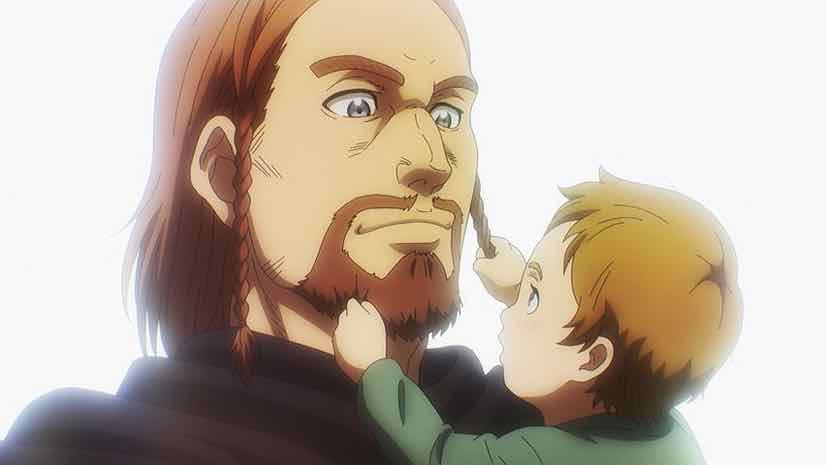
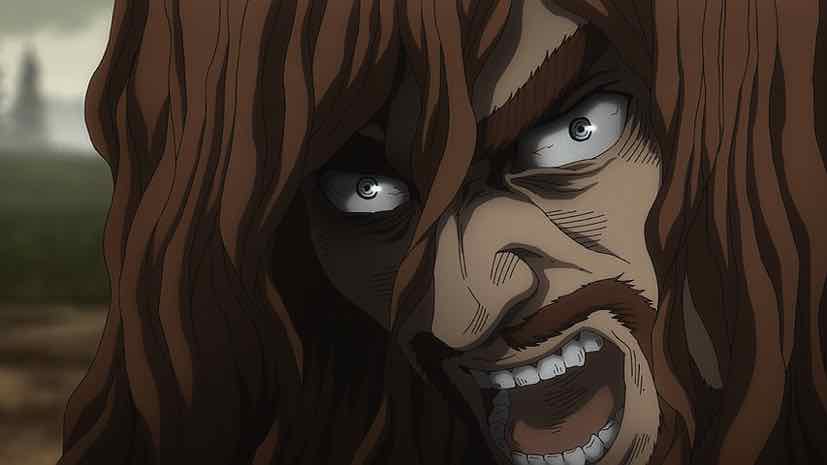
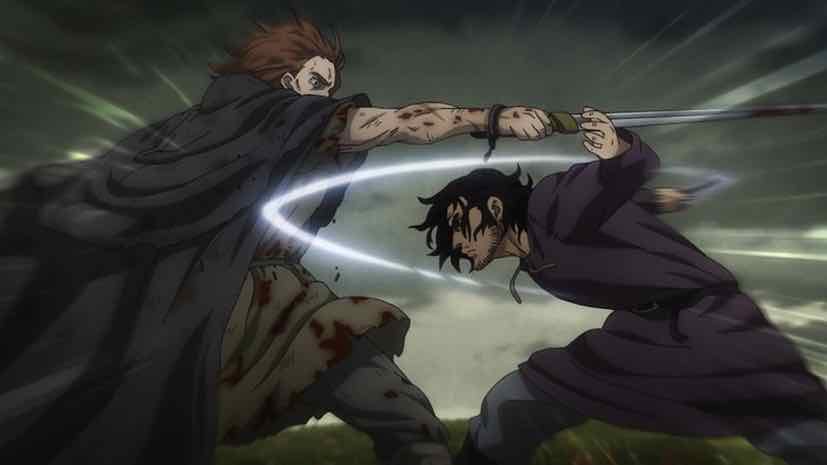
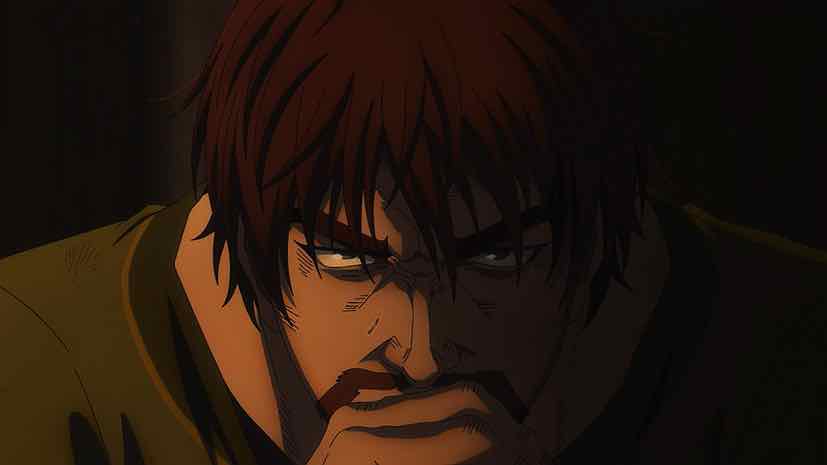
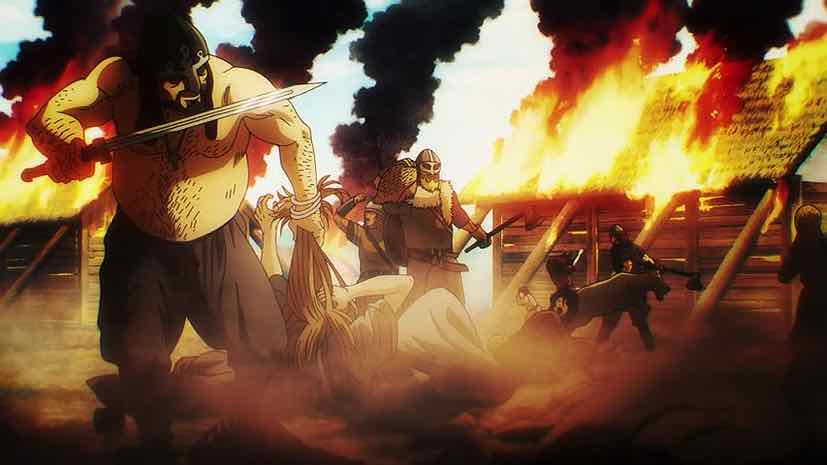
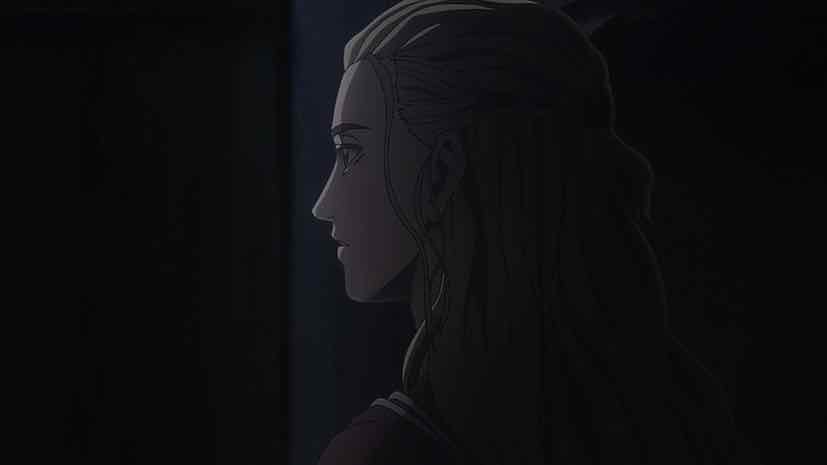
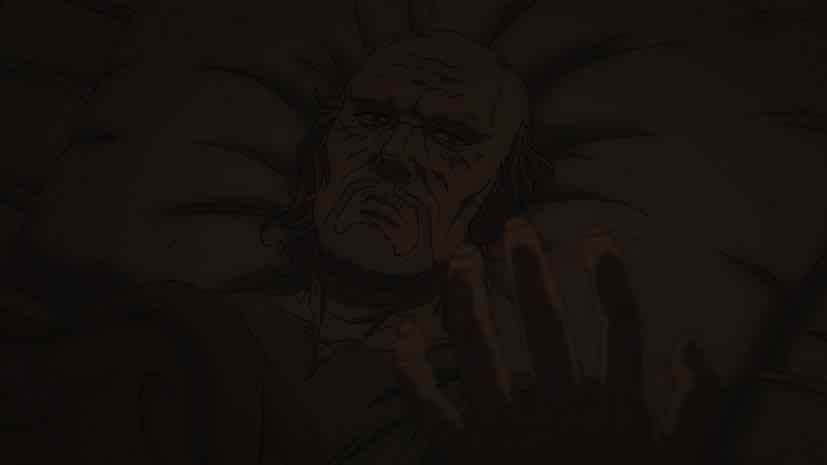
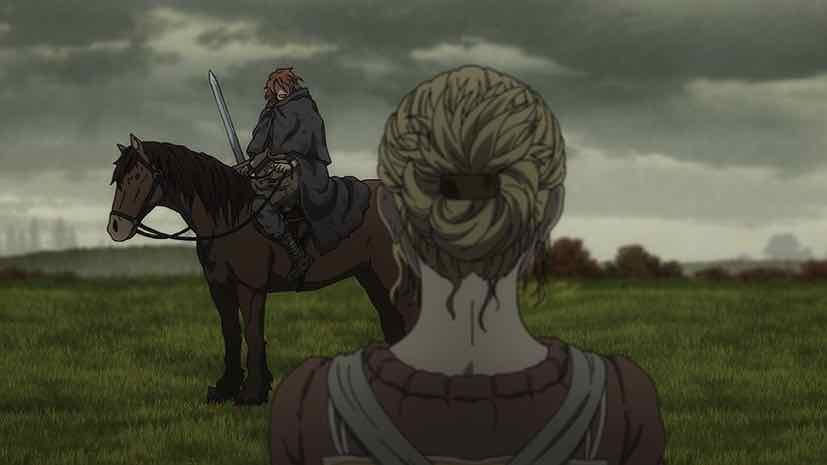
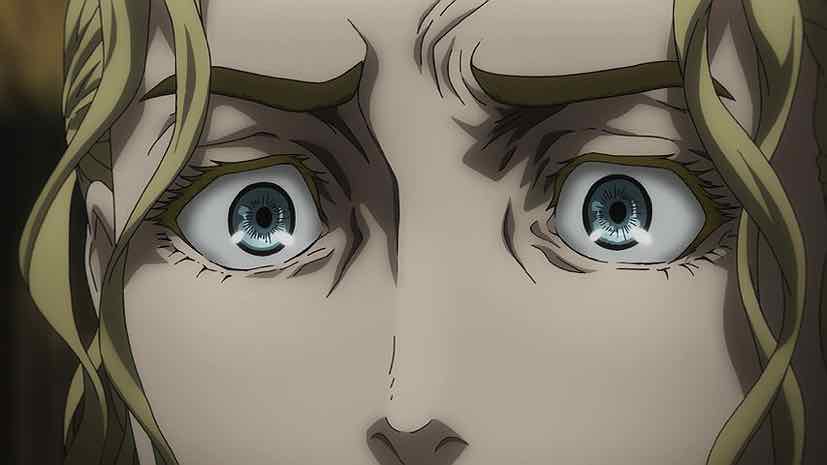
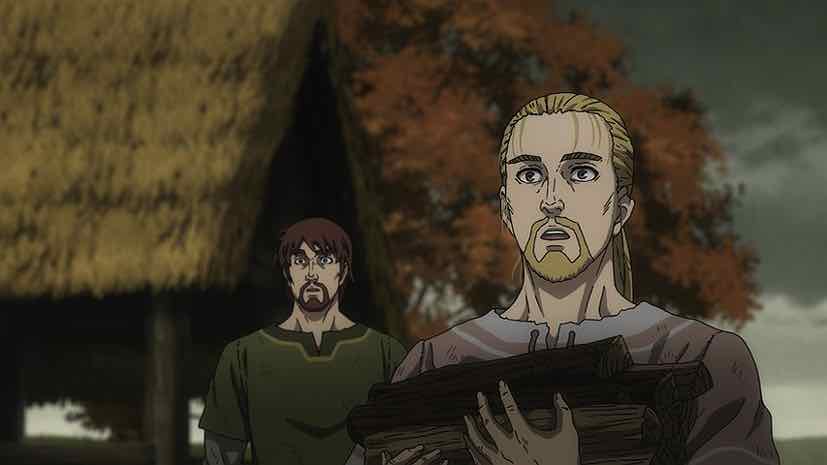
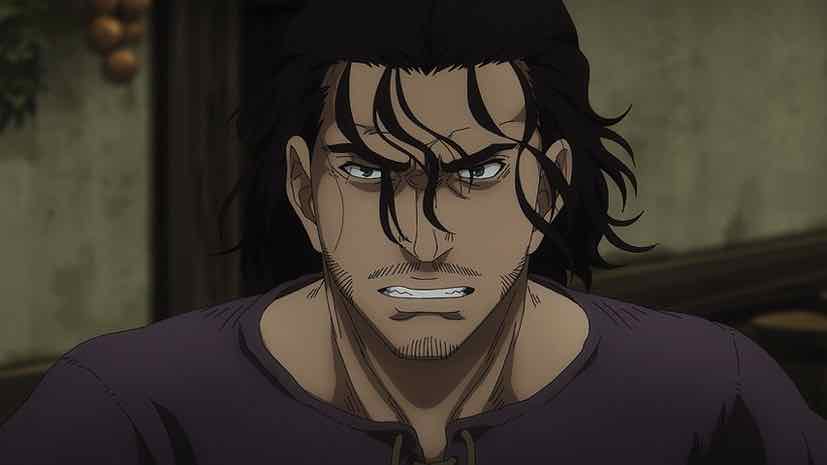
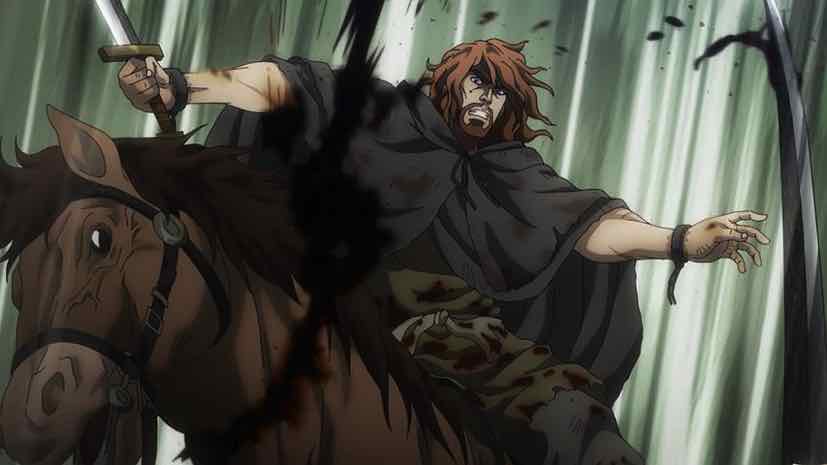
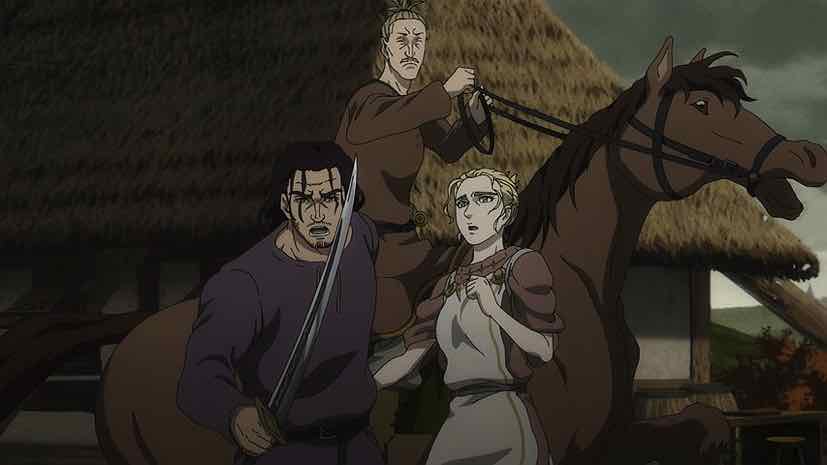
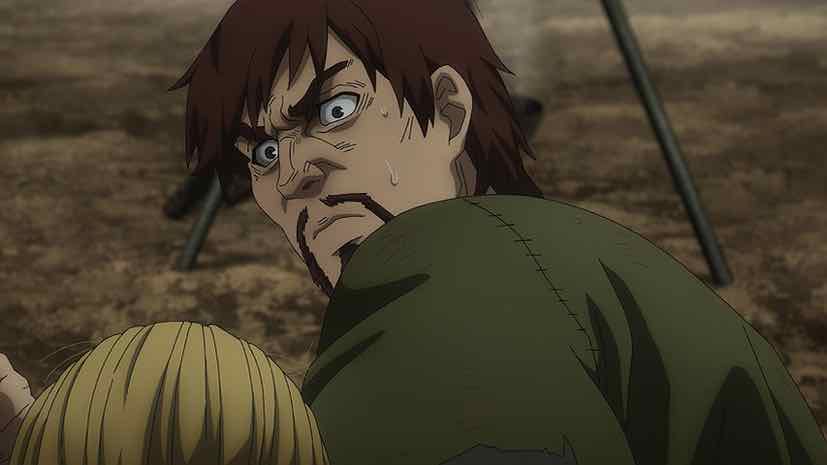
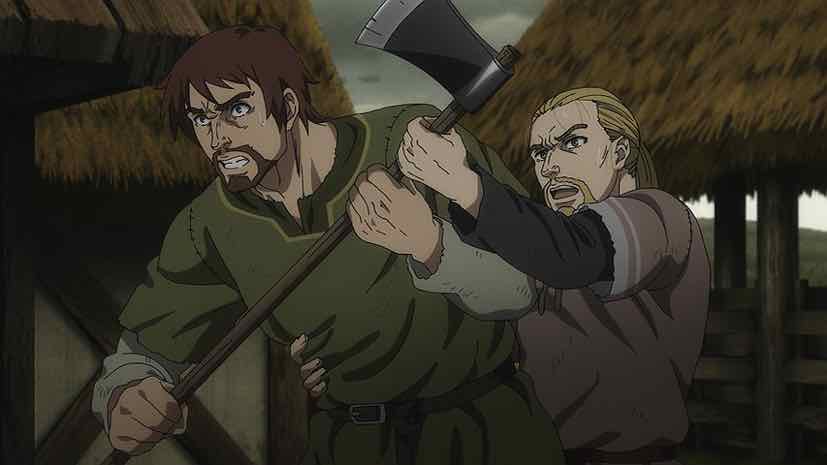
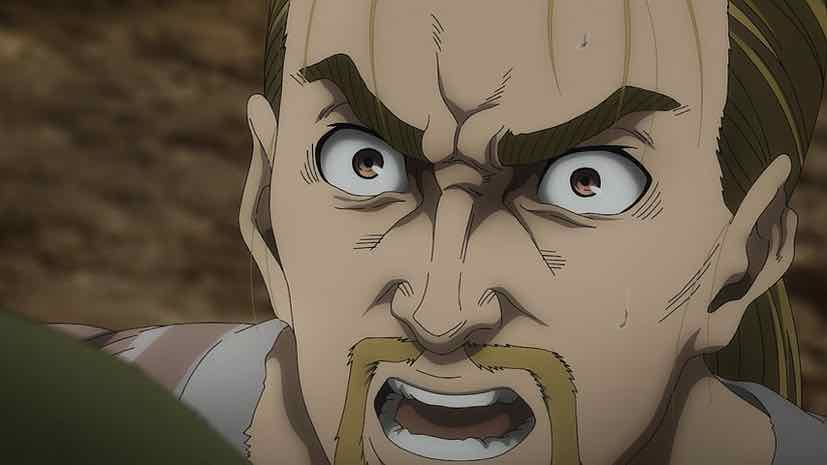
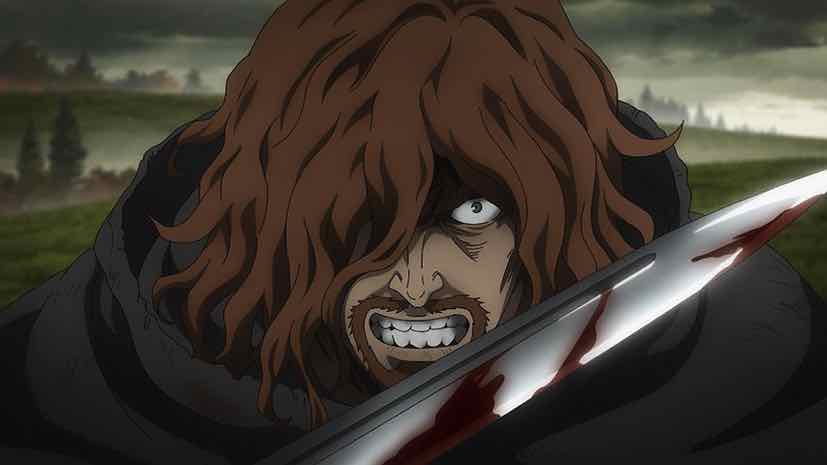
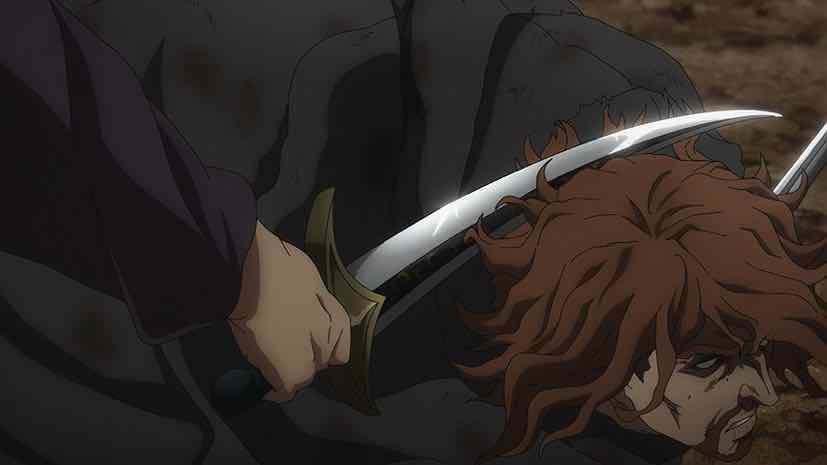
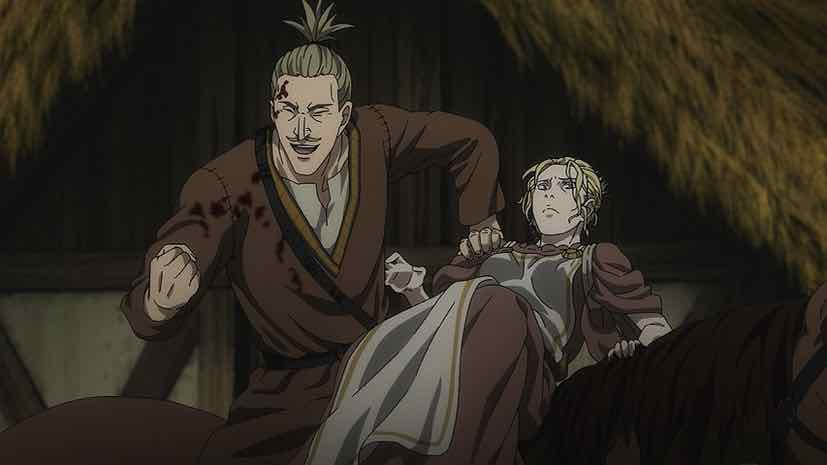
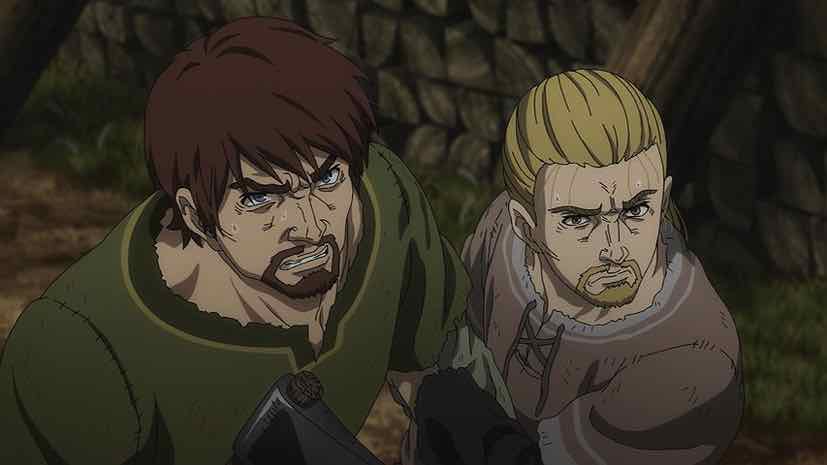
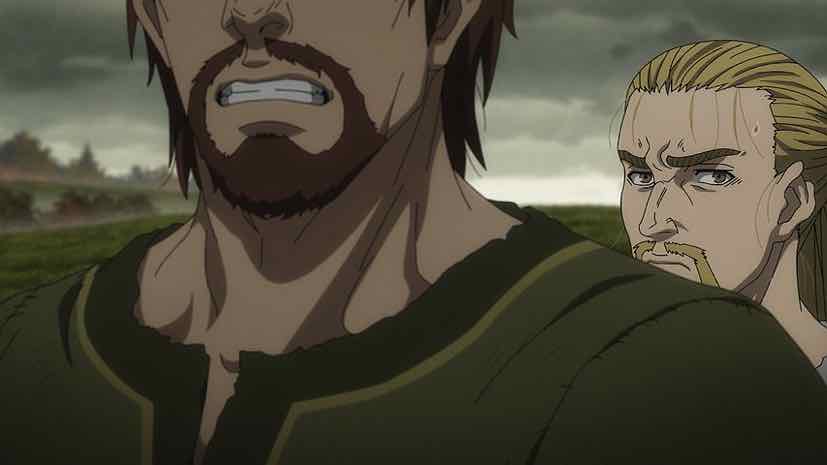
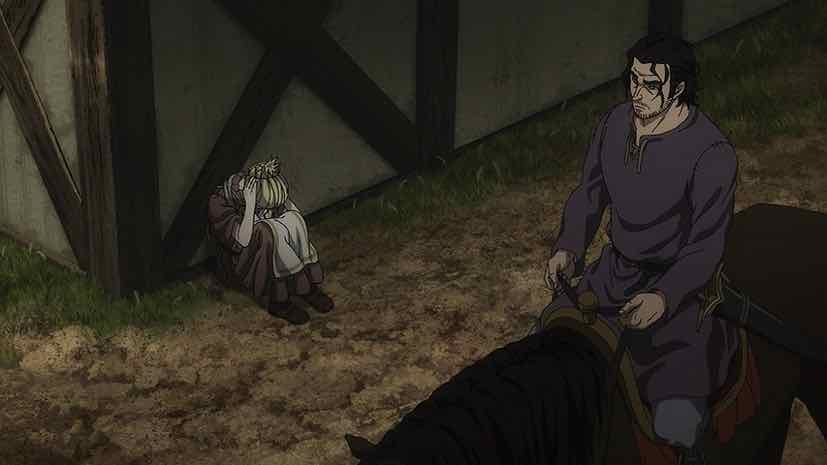
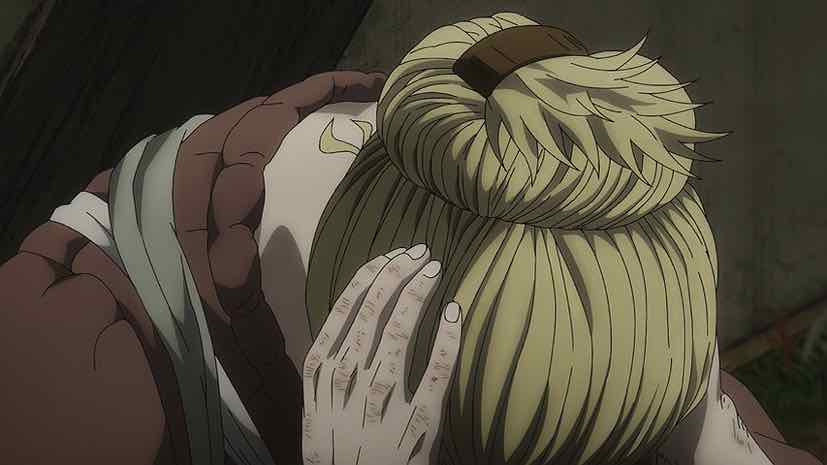
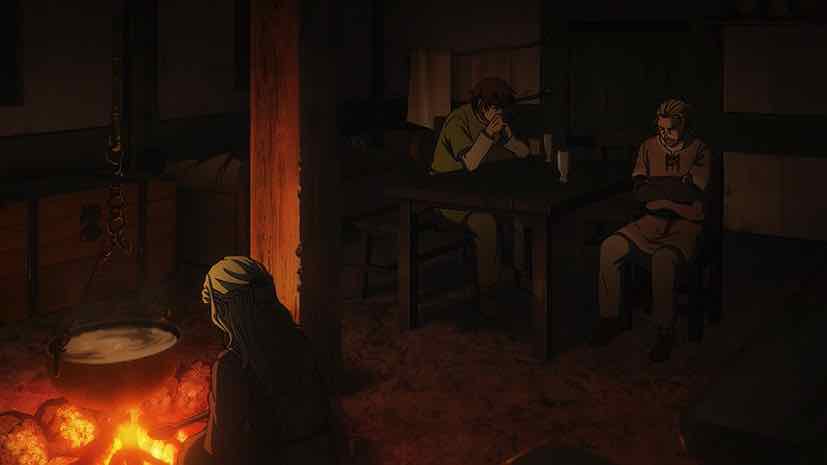
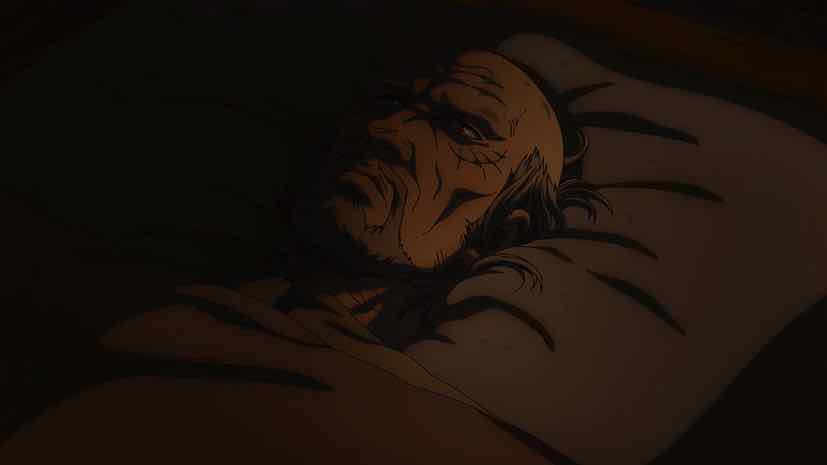
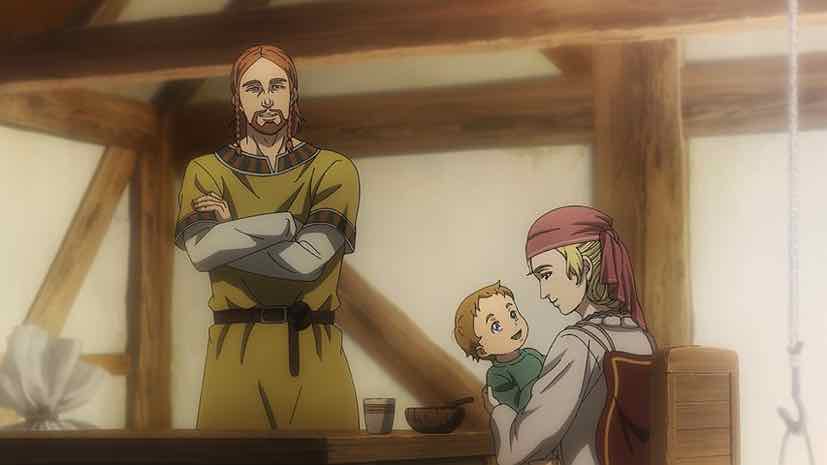
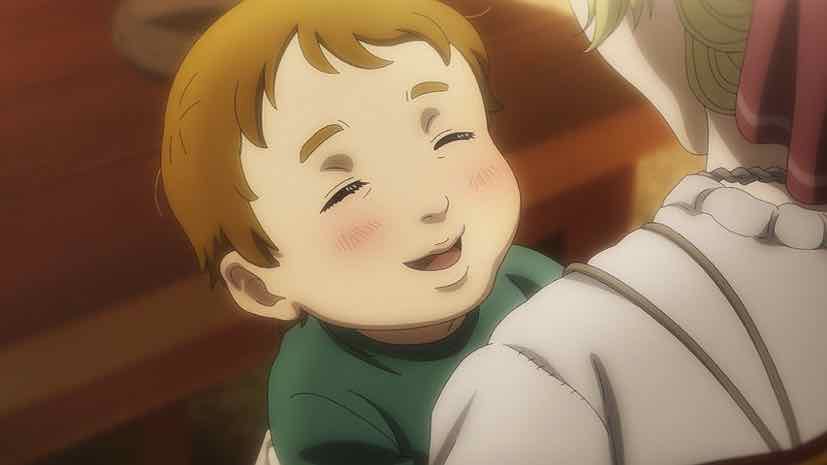
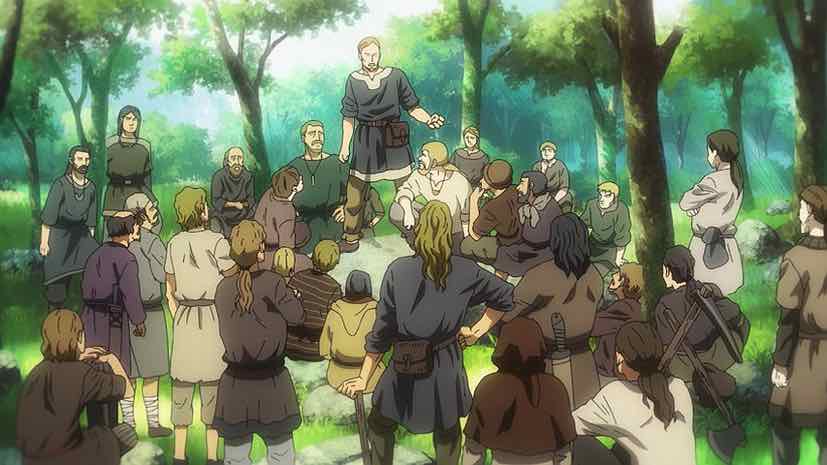
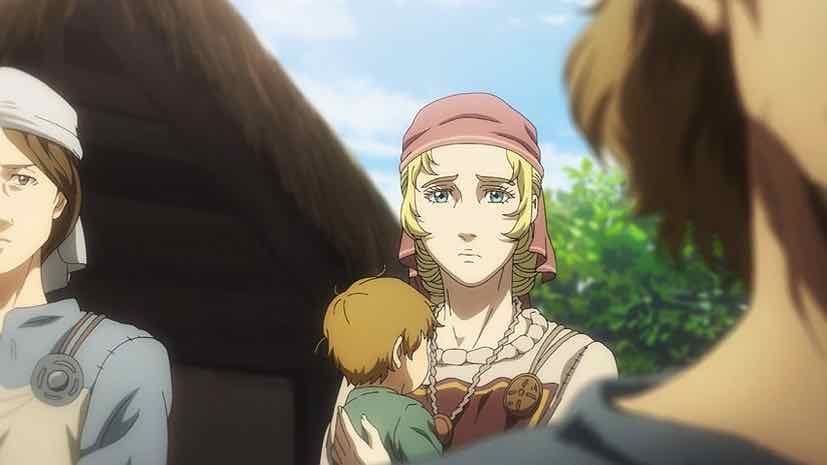
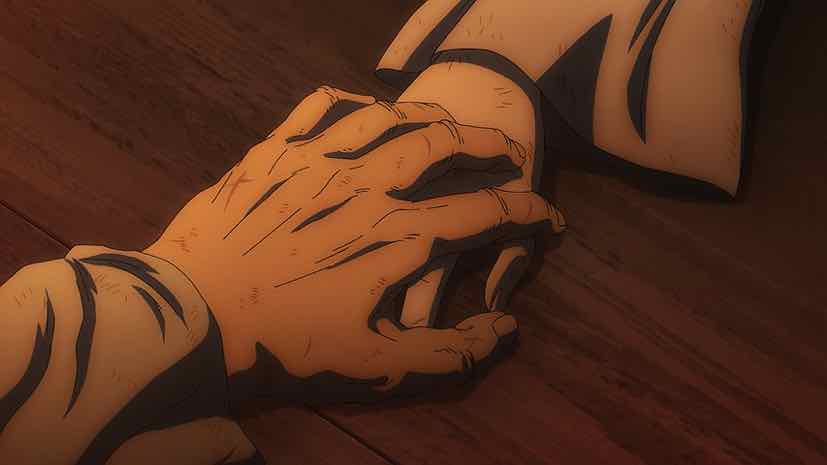
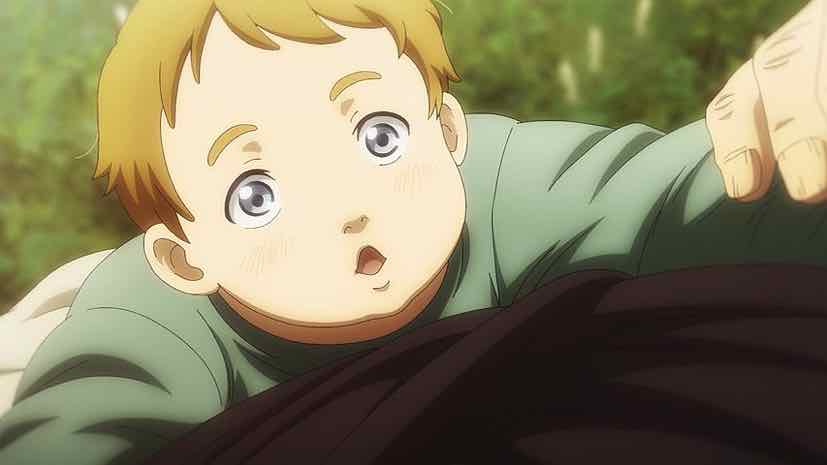
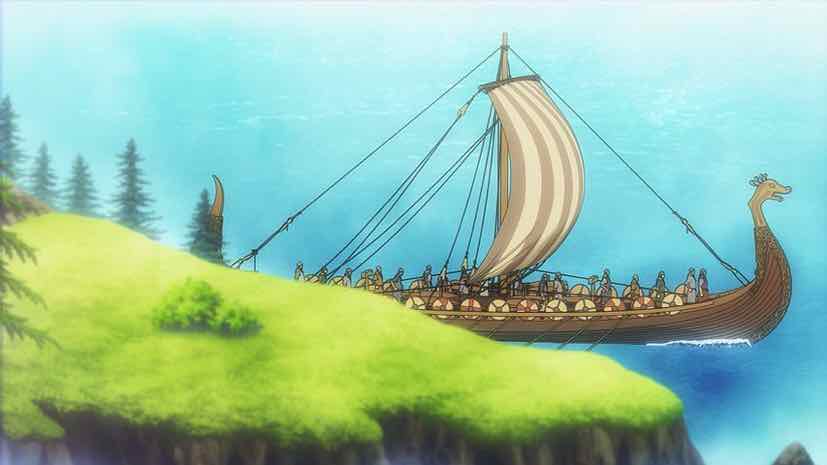
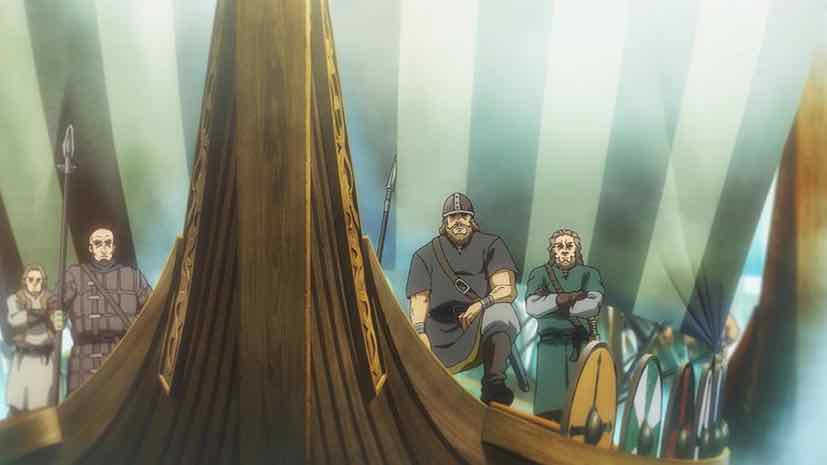

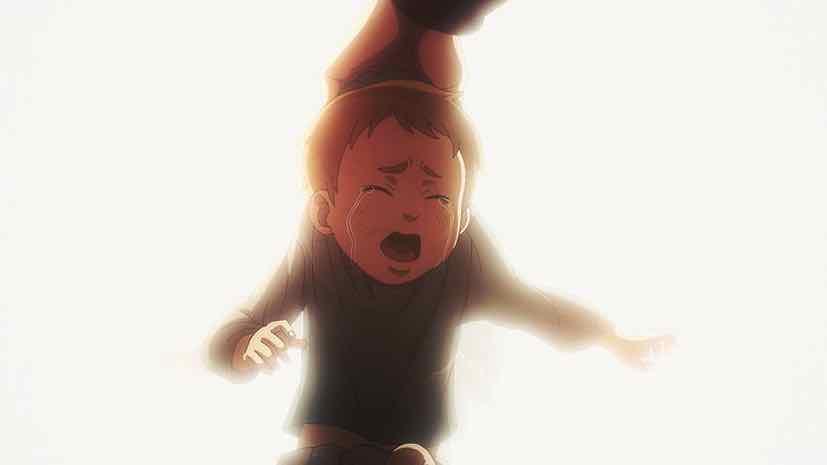
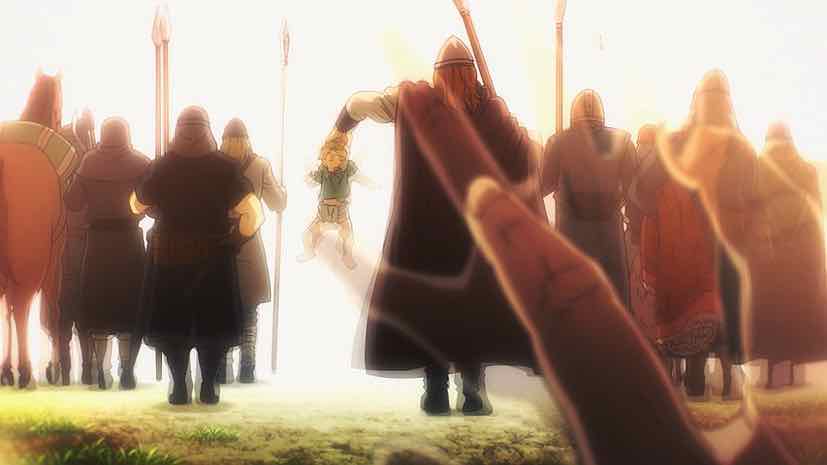
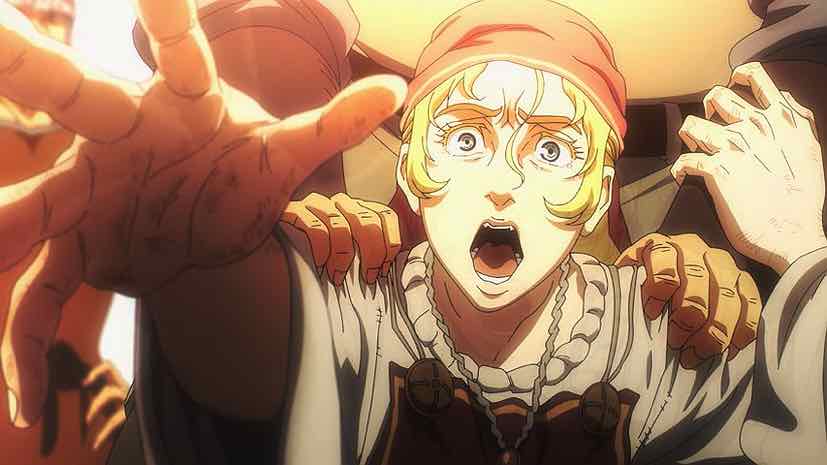
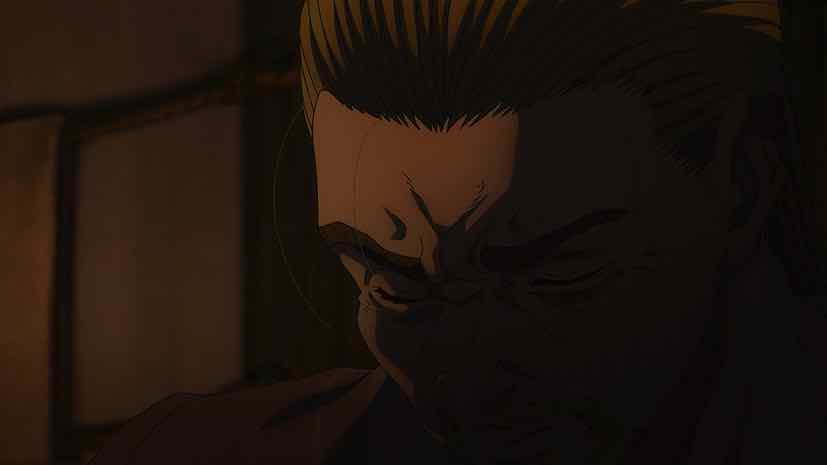
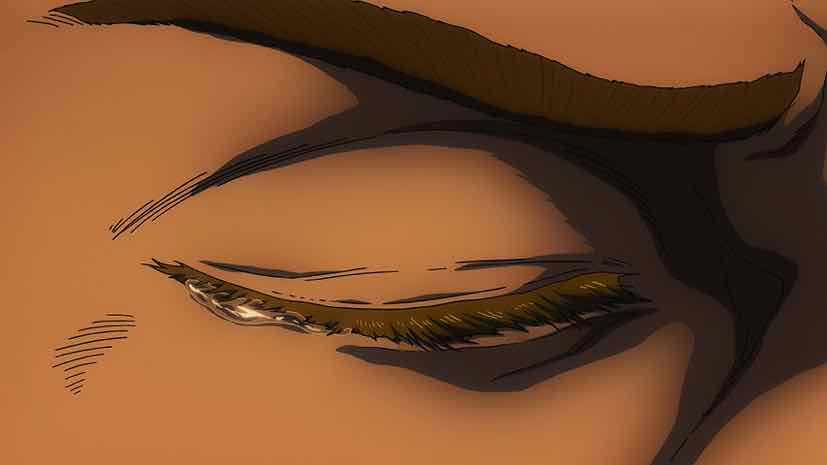
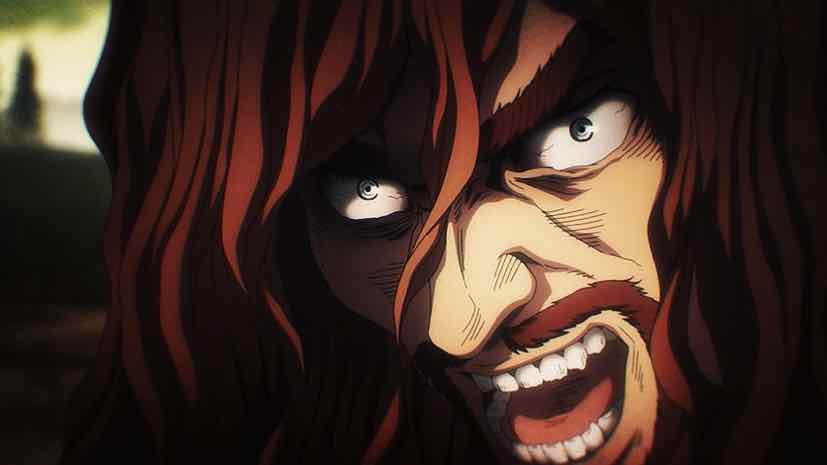
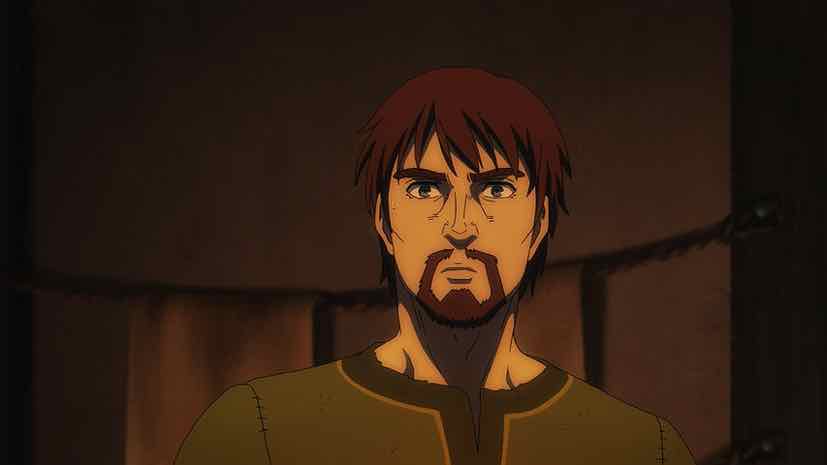
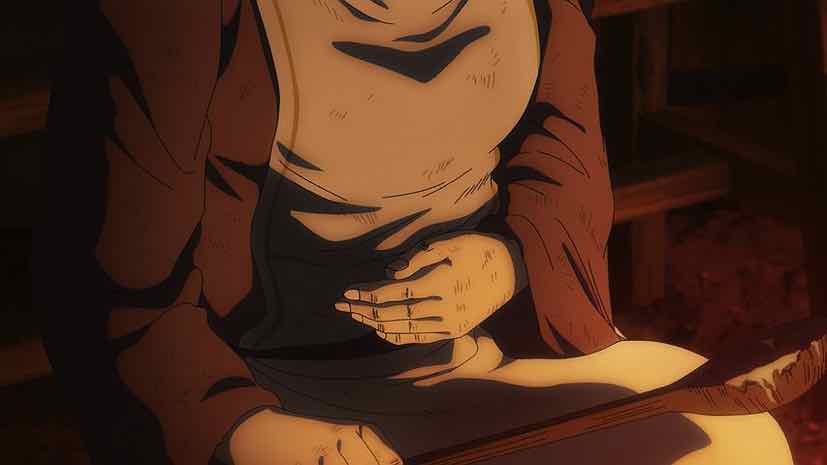
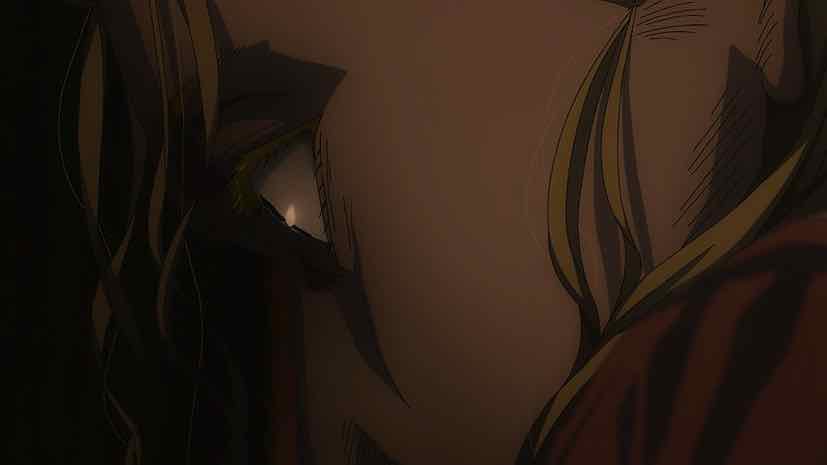
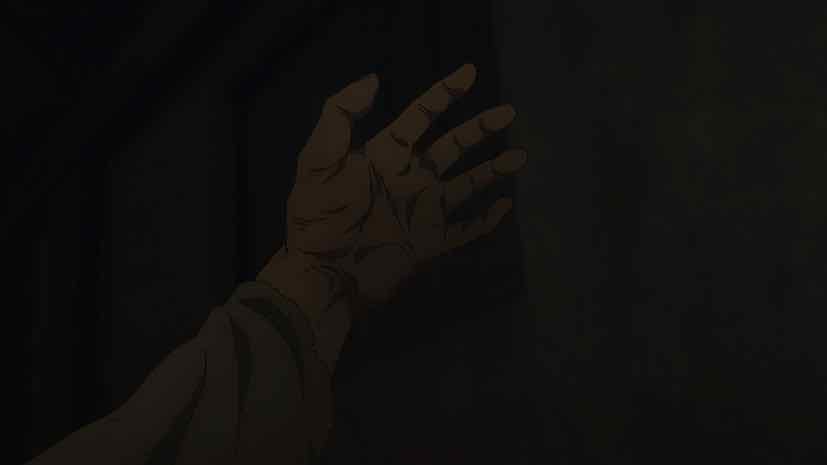
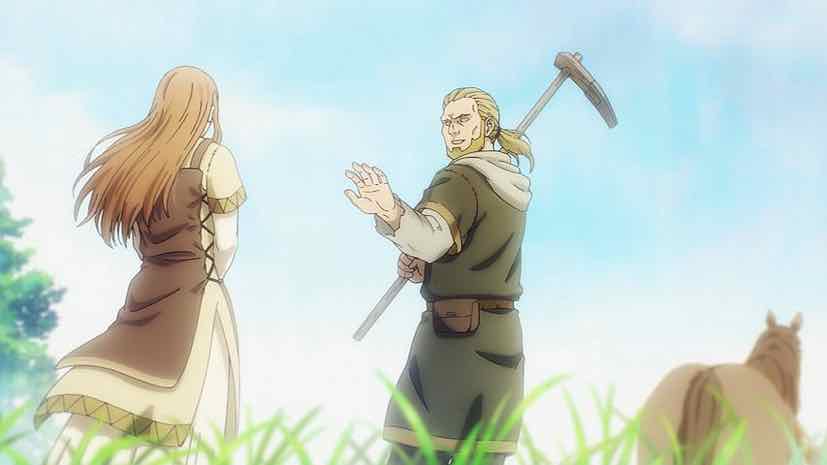
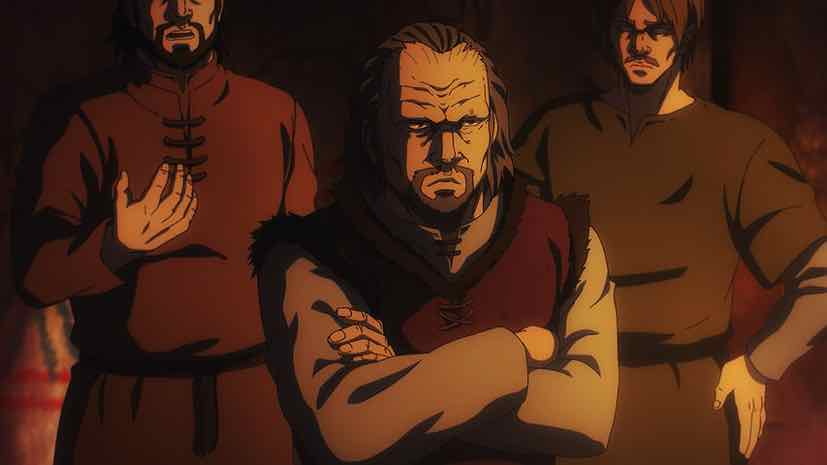
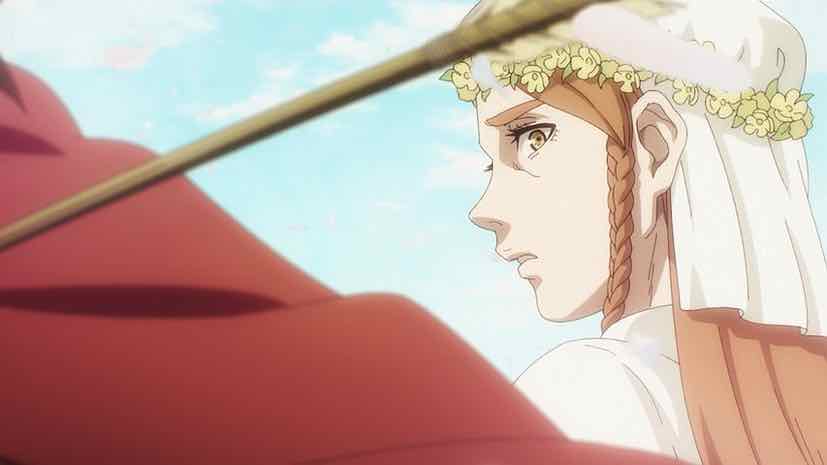
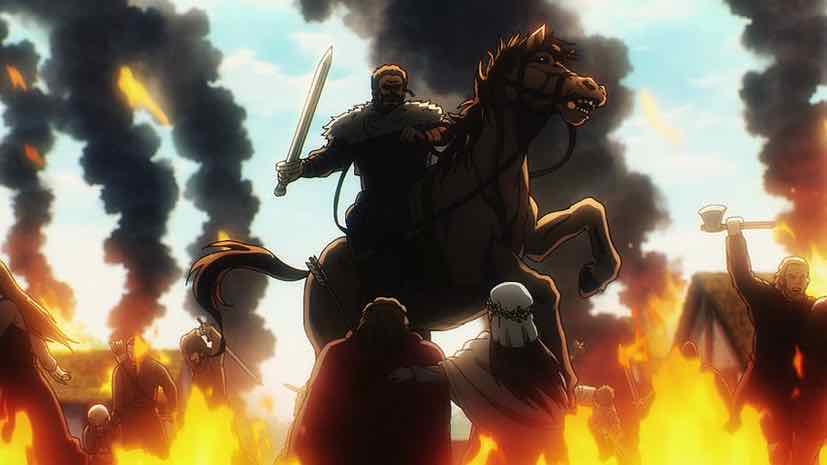
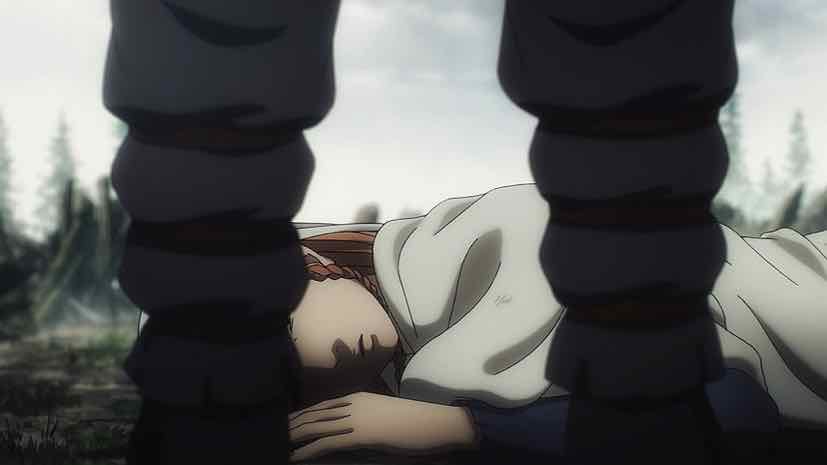
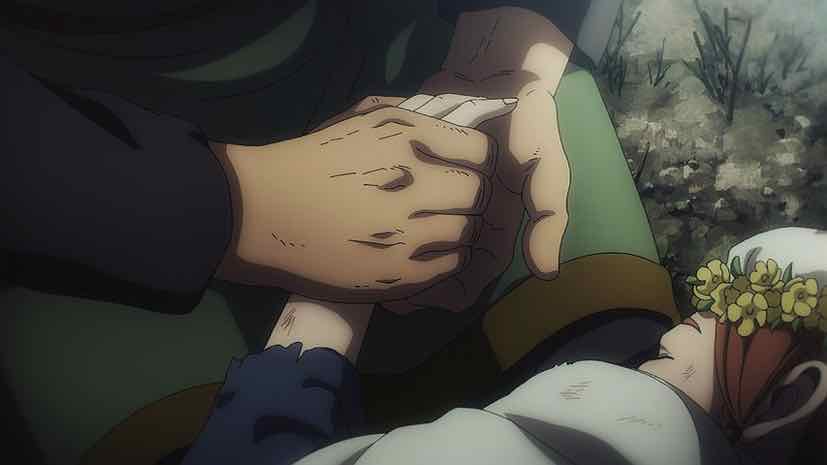
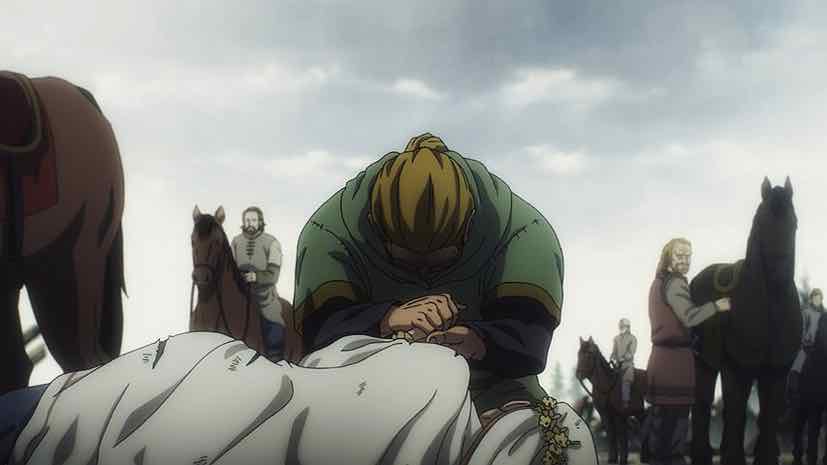
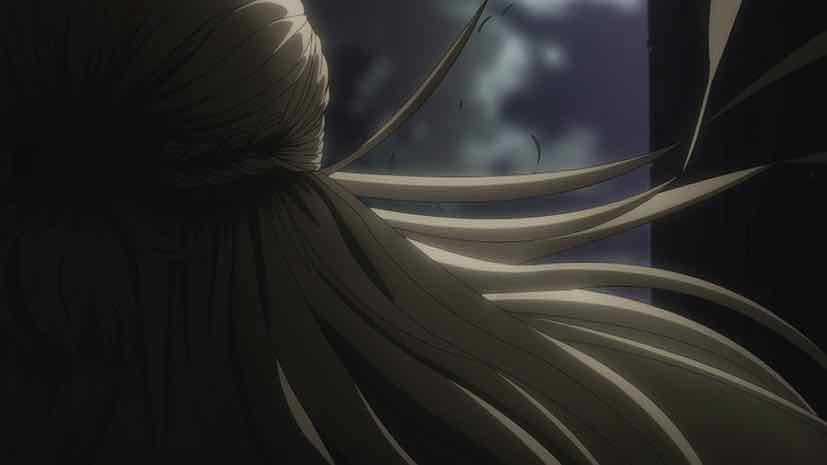
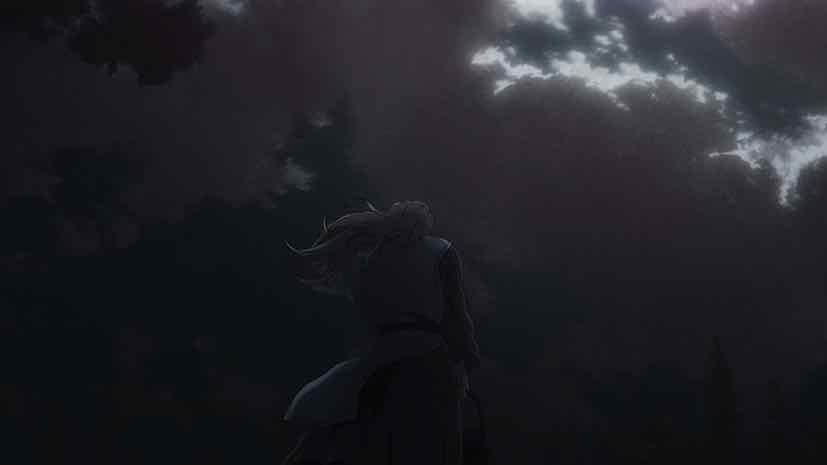



Marty
April 11, 2023 at 10:57 pmYukimura’s efficiency at characterization is impressive. Snake doesn’t seem to be the one-dimensional asshole that lazier writers would make, and he enjoys at least being an acquaintance with Thorfinn and Einar, but he doesn’t hesitate to remind them of their place in society, and the Gulf between them when the going gets rough.
He doesn’t need a tirade, monologue, or Over-the-top performance, all he needs is 1 word. He consciously and purposefully calls them “slaves,” when he can tell what Einar was thinking, and that’s all he needed to say to get the point across.
Stewart
April 12, 2023 at 12:11 amHave to give credit where it do and point out that Sverkel’s backstory is anime original. It definitely added more context to his belief that too much wealth brings misfortune and adds layers to some future events. Vinland Saga’s anime only contant is consistently great. They clearly have a lot of love for the series.
Snake is definitely well written. I do think he genuinely like Thorfinn, Einar and even Arnheid but believes in following and enforcing the rules of society( which yes is society the series constantly shows the viewer/ reader is brutal and unjust).This established strongly back in 2×7 during the situation with the two thieving kids.
Guardian Enzo
April 12, 2023 at 7:21 amSverkel’s monologue is the highlight of the episode for me. It seemed like the whole thing was building p to it, to the point where it’s hard to imagine the drama without it. It contextualizes Arnheid’s whole philosophy.
I noted this elsewhere but yeah, the anime-original content has been consistently top-tier.